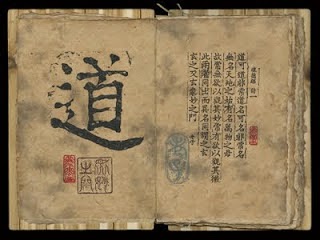

Part of the Guodian Laozi, the earliest known copy of the Daodejing, circa 300 BCE. Also in everyday speech, manifestations of qi are customarily called qi: For example, excessive fire qi in the liver may cause anger, but this anger itself is called "qi." A qi master may have students rub their hands together to generate qi, but the heat that is felt as a result of this is itself sometimes called "qi." All of life and existence are manifestations of qi. It is the vital life force gained by the act of breathing, and thereby the breath itself. Within Daoism it may refer to a hidden spiritual creative force that gives birth to all that is, was, and will be. It is a relative term, a propositional term, gaining its meaning by the context in which it appears. Qi (chi or ch'i) is a Chinese concept open to many interpretations. It is the most widely known and influential book ever written in Chinese. It is a collection of 81 poetic aphorisms that offer a spiritual as well as practical way to live in the world. The Daodejing (Tao Te Ching) is a book of slightly over 5,000 Chinese words said to have been written by Laozi (Lao Tzu) in the sixth century BCE. Qi in the Daodejing-The Way and its Power Ĭompiled from various sources with commentary by John Voigt Article: Qi in the "Daodejing" | author: John Voigt | date: 22:40:08


 0 kommentar(er)
0 kommentar(er)
